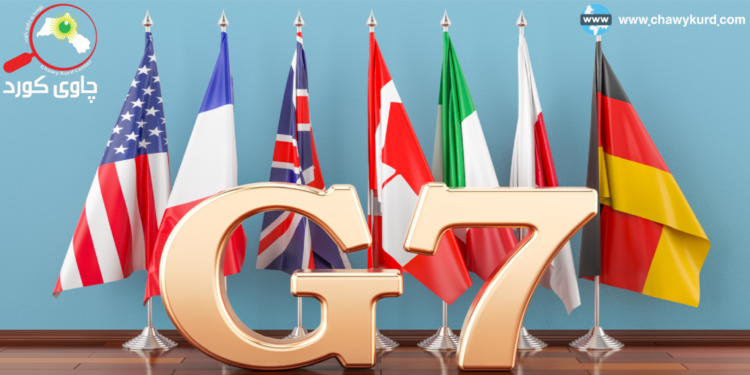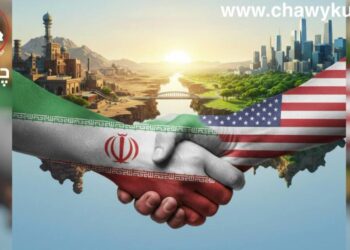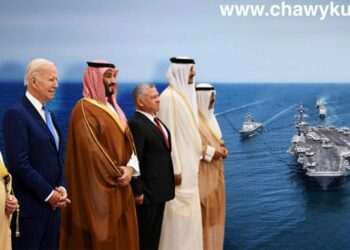The Group of Seven (G7) held its 51st meeting this year. This was at a time when the “Russian-Ukrainian, Israeli-Hamas, Israeli-Hezbollah, Israeli-Houthi” war in Yemen continues and now the Israeli-Iranian war. However, this year’s summit comes at a time when Trump has returned to power and imposed tariffs on a number of G7 member states; Canada, for example, will host the summit this year. In this paper, we will focus on the consequences and challenges facing the G7 summit in 2025.
Challenges facing Group of Seven”
This year’s agenda of G7 meetings consisted of six main points:
– The future of the world economy.
– Economic recovery, security and resilience.
– Safer communities.
– A world full of security.
– A strong and sovereign Ukraine.
– The future of energy security.
However, if we look at the global reality and the agenda of this year’s G7, we see that this group will face a number of major challenges that we will briefly discuss below: –
First, there are problems between Trump and the leaders of the European countries participating in the meeting, as well as Canada. Although this summit is mostly an economic and financial summit, but “Trump” himself has imposed a number of tariffs on goods exported from these countries to the United States. This will prevent a clear policy to address global economic and political challenges.
Second, the summit is being held at a time when the Middle East is completely unstable. Countries such as Iraq, Syria, Palestine, Yemen, Lebanon and Iran are at war with Israel, directly or indirectly. This is despite the continuing war between Russia and Ukraine. This made it difficult to reach an economic-political decision between these countries on how to deal with this issue.
Third, there was a common point among all countries at the summit: how to counter China’s threats to these countries and the global economy. The meeting focused more on the Communist Party of China than the “Chinese state” itself. Therefore, all countries agreed to support Taiwan against China’s aggression. The main reason is that Taiwan is one of the most important producers of electric batteries and artificial intelligence chips.
Fourth, the Ukraine crisis continues and even “Donald Trump” at the beginning of his inauguration as much as indirectly supported Russia and blamed Ukraine and its president for the continued war, has not tried to solve this problem. This position of “Trump” even caused protests in the European Union.
Fifth, the agenda talks about economic recovery and global security, but at the same time calls for fighting China’s economic challenges and Russia’s aggression against Ukraine. But these two countries are currently the world’s economic powers, especially China, the world’s second largest economy after the United States; that is why it is difficult for these countries to achieve economic prosperity and security at the global level.
Although the G7 countries account for more than 40% of the world economy and are a group of powerful, industrial, technological and military countries, but this group does not have executive power at the international level and the decisions it makes are specific to these seven countries. In addition, for the 2025 summit, tensions among the members of the group due to events in the Middle East and the actions of Donald “Trump” was at its highest level, which will have a undesirable impact on the performance of the group globally. Although these seven countries are democracies, they do not support the establishment of democracies in other countries around the world, especially in Latin America, Africa and the Middle East.





























































